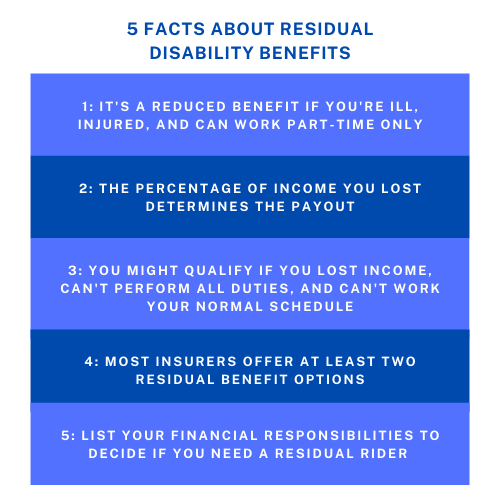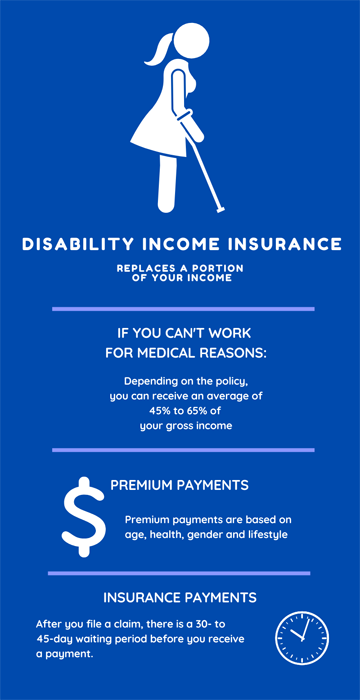Disability income insurance benefits pay a percentage of your gross income when you are ill or injured and cannot work. But if you must live on only a percentage of your income, will your benefits be taxed?
Are Disability Income Insurance Benefits Taxable?
Whether or not disability income insurance benefits are taxable depends on several factors, including the source of your plan, whether you deduct premiums on your taxes, and who pays for the premiums.

- Employer-sponsored income insurance – If your disability income insurance is employer-sponsored and your employer pays the premiums, your benefits are taxable.
- Privately-owned income insurance – If you purchased a private policy and pay the premiums with after-tax dollars, the benefits are not taxable.
- Deduct premiums on your taxes – According to Internal Revenue Service Publication 535 – Business Expenses, you can deduct disability income insurance premiums on your taxes if you own an overhead insurance plan. An overhead insurance plan pays business overhead expenses if you cannot work due to illness or injury. But if you deduct the premiums, your disability income insurance benefits will be taxed.
How Much Do Disability Income Insurance Premiums Cost?
Disability income insurance premiums cost one to three percent of your income. If you are self-employed, a business owner, or a contractor, disability income insurance provides income when an illness or an injury prevents you from working.
Disability Income Insurance Basics
Before you apply for disability income insurance, it helps to know a few basics about it. Depending on your insurance company, your plan may differ.
- Age requirement – The minimum age requirement for disability income insurance is 18. The maximum age is 60.
- Claim waiting period – After your policy is effective, there is usually a 30-day waiting period before you can file a claim.
- Benefits waiting period – You will receive your first payment in 30 to 45 days after your claim is approved.
- Percentage of benefits – Most plans will pay up to 60% of your income.
- Maximum benefit period – Most plans have a maximum benefit period of two to ten years.
For more details, read our post, 6 Facts About Income Protection Insurance You Might Not Know.
Interested in Disability Income Insurance?
If you live in North Carolina and are interested in disability income insurance—or income protection insurance—John Hunt of Hunt Insurance in Raleigh can help. Contact us to schedule a consultation.



